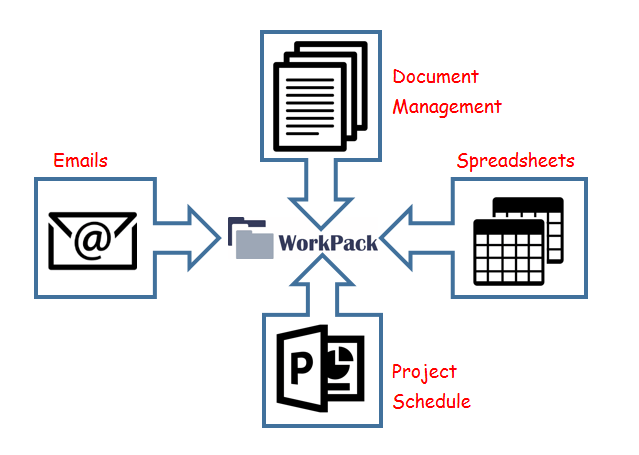Bill of Quantity or BOQ is a commonly prepared document in construction projects. BOQ is basically a list of all the components in a construction project along with their quantities, rate and cost.
Line items in a BOQ can be construction activities like – excavation, foundation, brickwork etc. They can even be material items or equipment to be procured – for example, storage tank, cement etc.
For construction activities, the quantity is determined in terms of scope of work for that activity – for example – 100 Cubic Meters of foundation work.
For material or equipment procurement tasks, the quantity of the item to be procured is specified with appropriate unit of measurement. For example – 1.5 Ton of cement, 2 storage tanks etc.
These quantities are multiplied by labor rate or material rate to get the cost of each line item.
When all the line items in a BOQ are put together, we get the total scope of work for that construction project. Summing up the costs for all line items gives us the overall project cost.
Given how a BOQ captures the complete scope of work and costs of a project and breaks it down to activity levels, it becomes clear how important it is at the beginning of a project.
BOQ for construction project bidding
A cost estimation engineer on the contractor’s side prepares a BOQ at the bidding stage. In this BOQ document, he captures – all the expected construction activities, required material and equipment. This estimation is done based on previous experience with similar projects.
Further, he also estimates the rates for different services and material items – again based on previous project execution experience and knowledge of current market rates.
The quantities of services and material items multiplied by their respective rates provide the cost of each line item in the BOQ. These cost numbers are summed up to derive the total estimated cost for the project itself
That is how BOQ document becomes the basis for commercial bid for a construction project.

Time and effort invested in BOQ preparation
Since the BOQ forms basis of commercial bid for any construction project, BOQ preparation is absolutely necessary and very important at the project bidding stage. Naturally, any construction contractor gives a lot of attention to the BOQ preparation process.
Usually, a cost estimation engineer or a team engineers takes care of this process. They use historical project data, their knowledge of the industry and some well developed thumb rules to prepare a BOQ for any new project.
But, this is by and large a manual process. So it takes up a lot of time of the costing engineers. That puts a limit on the number of project bids that the costing team can prepare and how many opportunities sales team can pursue.
So the manual process of cost estimation and BOQ preparation can become a bottleneck, when a construction business is trying grow by targeting more projects.
Difficulties in automating BOQ preparation
Considering this potential bottleneck for a growing construction business, it makes good sense to automate this process – at least partially.
But it is much easier said than done.
There are many difficulties in standardizing the cost estimation process. BOQ preparation for any new project depends on a multiple factors which require professional judgement of a costing engineer with strong experience in similar construction projects.
For example – location of the new project, new design, transportation costs to the site, requirement of specific materials etc. are some factors that will widely vary from project to project. And these factors will heavily influence the costs of different materials and services.
That makes it very difficult to use any equations or thumb rules to standardize the cost of different line items in the BOQ.
And without standardization automation is next to impossible – for even moderately complex construction projects.
Improving the BOQ preparation with historical data
If we cannot automate the BOQ preparation process, can we at least streamline it and make it faster?
Indeed it is possible to improve the overall BOQ preparation process by streamlining or partially automating the steps that take the longest time for cost estimation.
Any construction project is made up of many activities with varying degree of complexity. For simpler activities, a costing engineer can use certain equations or thumb rules to estimate SOW, material requirement and costs.
But the same thing is not possible for more complex construction activities, where factors like project location or engineering design have significant influence.
| For example, certain material cannot be bought locally at the construction site. They have to be transported from a specific vendor or storage facility to the project site. Sometimes the transportation costs can have a significant influence.
In such cases how do you select the vendor? Who are the vendors close to the project site? What have they charged us for previous projects? Did they deliver on time? – These are the typical questions that an estimation engineer would ask and try to estimate the cost based on those answers. |
For those complex activities, a costing engineers typically refer to past project data – from any previously completed projects at the same location or with similar design etc.
But looking up past project data can take a lot of time. First, you need to browse through history of projects and identify similar jobs. Even then you can’t be sure whether any reliable cost data is available for those projects.
In many cases the data is not complete. If the project manager did not use a proper cost control system, there’s no guarantee that material and labor costs were accurately captured.
So there is significant room to improve the BOQ preparation process by creating a more accessible, searchable and reliable database of cost history for all past projects.
Digital solutions for costing database
Different spreadsheets (Excel, Google sheets or other online spreadsheets) are the most commonly used tools to create and maintain BOQ for construction projects.
So if these spreadsheets can be connected to a central database – which is accessible and searchable for future projects, it can serve as source for costing database.
Added benefit – BOQ standardization
A central costing database has another strong benefit. The past data can help in identifying cost trends and help in standardizing the cost estimation – leading to significant improvements.
WorkPack is one such platform which helps construction project teams from different industries. WorkPack combines BOQ spreadsheets from different projects to a central database which serves as a repository of costing data for future projects.
Further, WorkPack also combines the project BOQ with project documents, emails and schedule to enable well integrated and streamline project controls for construction projects.

Do you think WorkPack can be useful for your team? Check out our free trial version to learn more.
If you would like to schedule a free online consulting session, let us know.

No Comments